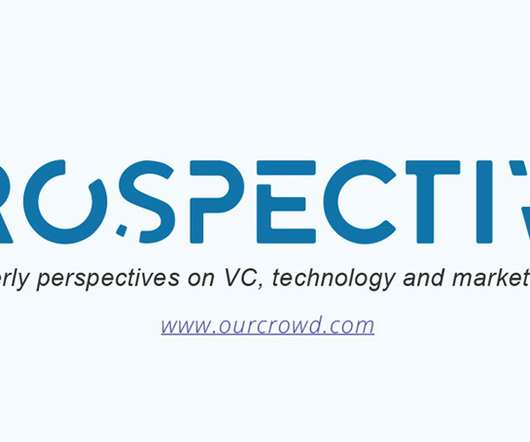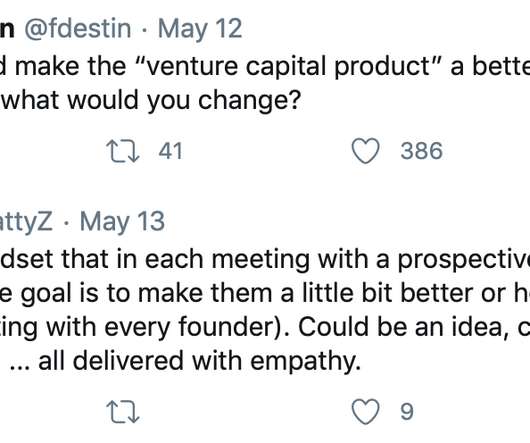2010 VC Funding Outlook for Startups – Prepare for Winter (Part 3/3)
Both Sides of the Table
OCTOBER 1, 2009
In the first post in this three part series I described why I believe the VC market froze between September 2008 – April 2009. I obviously don’t have a crystal ball so the economy could fare better than my gut, but here’s why I’m cautious for some time in 2010 or early 2011: Why is the future still so unpredictable?






































Let's personalize your content